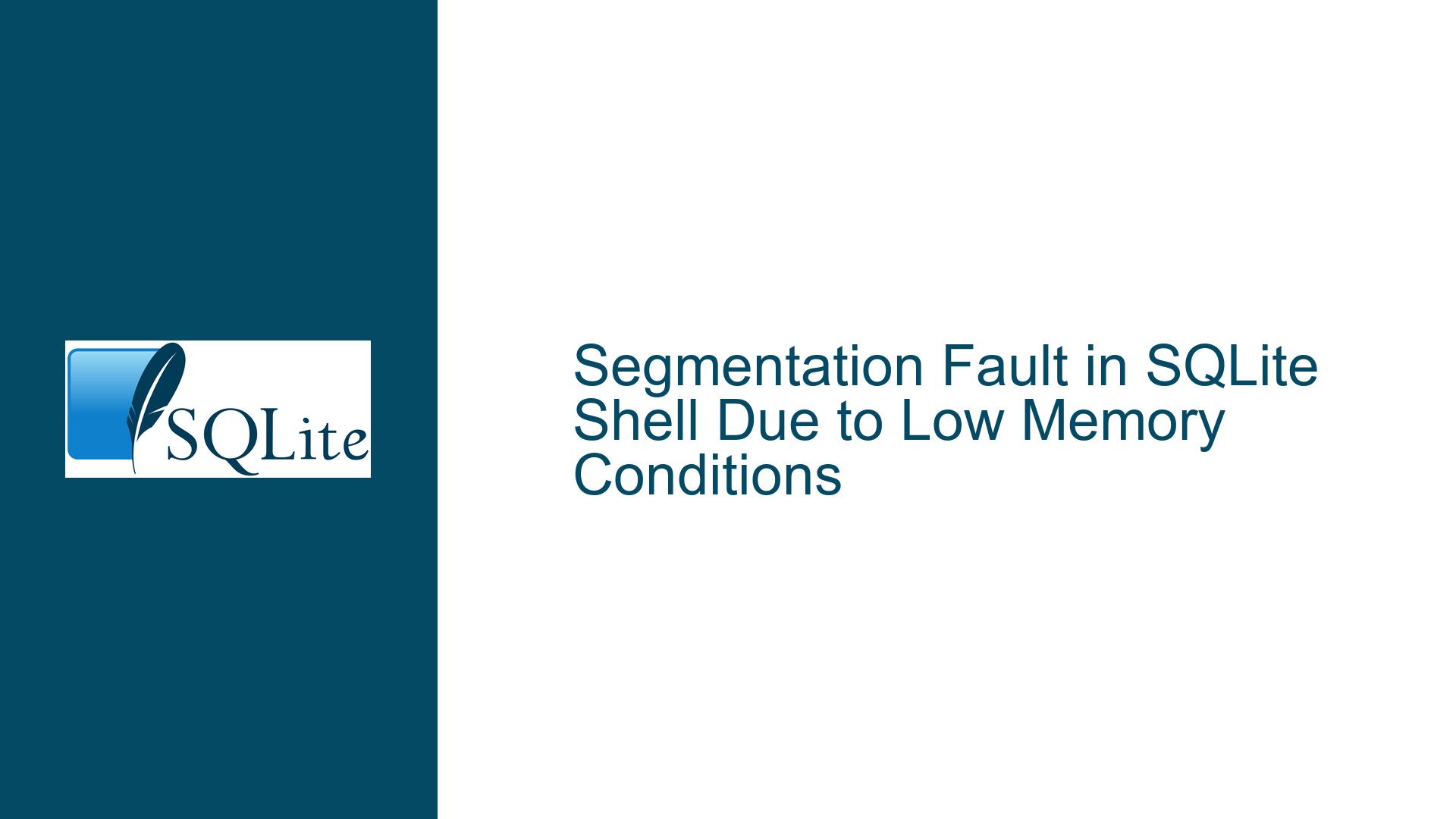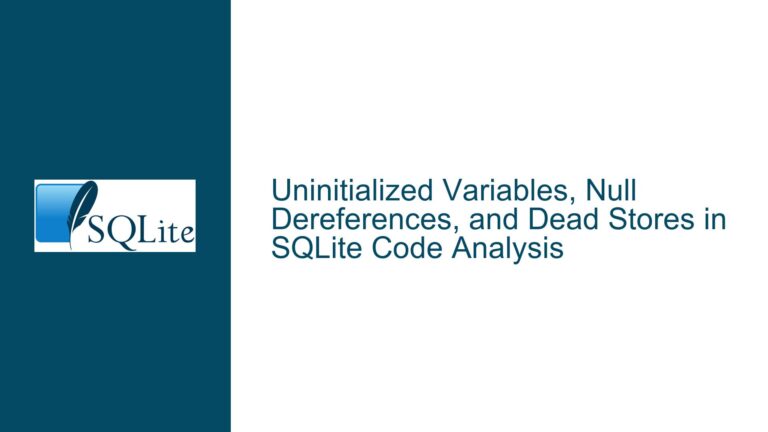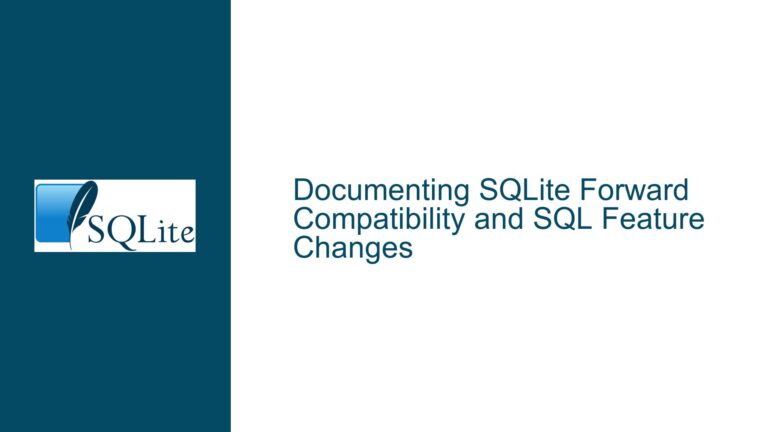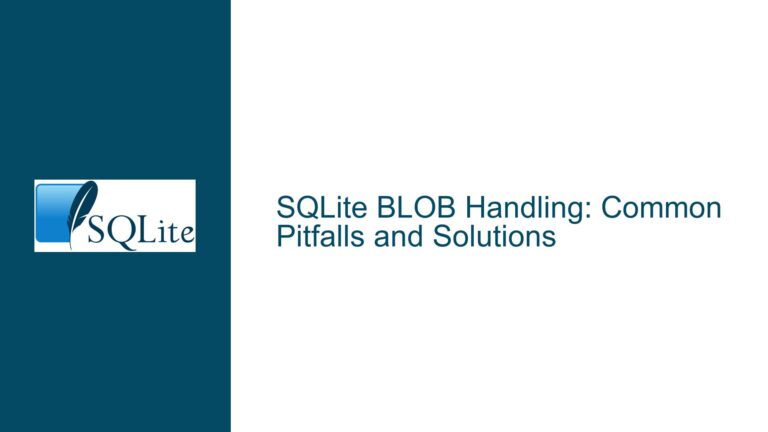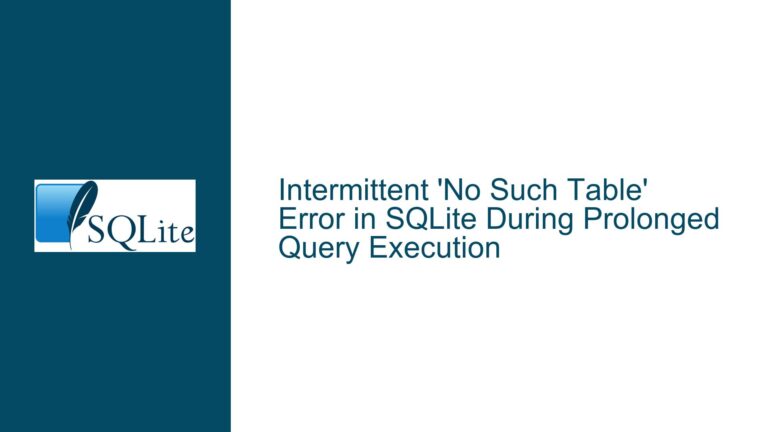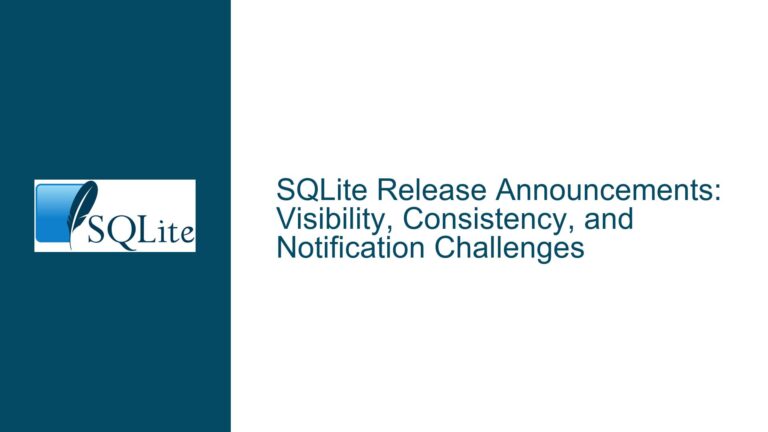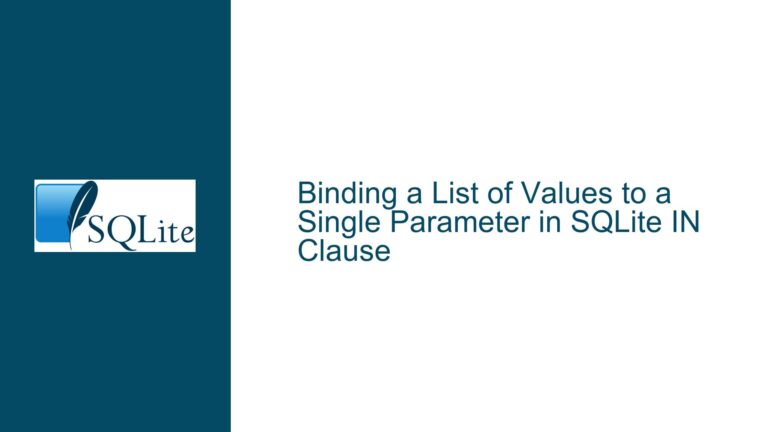Segmentation Fault in SQLite Shell Due to Low Memory Conditions
Segmentation Fault in shell_dbinfo_command Function Under Low Memory Conditions
The segmentation fault in the shell_dbinfo_command function is a critical issue that arises when SQLite is operating under low memory conditions. This fault occurs during the execution of specific queries, particularly when the PRAGMA hard_heap_limit is set to a restrictive value, and certain commands like .dbi are executed. The fault is triggered by an unchecked return value in the shell_dbinfo_command function, leading to a memory access violation. This issue is exacerbated by the combination of a low heap limit and the execution of complex queries involving views and common table expressions (CTEs). The fault manifests as a segmentation violation (SEGV) due to an attempt to read from the zero page, which is an invalid memory address.
The fault is particularly concerning because it occurs in the SQLite shell, a critical tool for database administration and debugging. The segmentation fault not only crashes the shell but also leaves the database in an uncertain state, potentially leading to data corruption or loss if not handled properly. The issue is further complicated by the fact that it only occurs under specific conditions, making it difficult to reproduce and diagnose without a detailed understanding of the underlying mechanisms.
The fault is rooted in the interaction between the SQLite memory management system and the shell’s command processing logic. When the heap limit is set too low, the memory allocator fails to allocate the necessary memory for certain operations, leading to an unchecked return value. This unchecked return value is then used in the shell_dbinfo_command function, resulting in a null pointer dereference and subsequent segmentation fault. The fault is further compounded by the fact that the shell does not properly handle low memory conditions, leading to undefined behavior and crashes.
Unchecked Return Values and Low Memory Conditions in SQLite Shell
The primary cause of the segmentation fault in the shell_dbinfo_command function is the unchecked return value from a memory allocation function. Under low memory conditions, the memory allocator fails to allocate the necessary memory, returning a null pointer. This null pointer is then used in the shell_dbinfo_command function without proper validation, leading to a null pointer dereference and subsequent segmentation fault. The fault is particularly problematic because it occurs in the SQLite shell, a critical tool for database administration and debugging.
The issue is exacerbated by the use of the PRAGMA hard_heap_limit command, which restricts the amount of memory available to the SQLite process. When the heap limit is set too low, the memory allocator is unable to satisfy memory allocation requests, leading to frequent failures. These failures are not properly handled in the shell, leading to undefined behavior and crashes. The fault is further compounded by the fact that the shell does not provide adequate error handling for low memory conditions, making it difficult to diagnose and resolve the issue.
Another contributing factor is the use of complex queries involving views and common table expressions (CTEs). These queries require additional memory for their execution, further straining the already limited memory resources. When the memory allocator fails to allocate the necessary memory, the shell crashes, leaving the database in an uncertain state. The fault is particularly concerning because it occurs in a critical component of the SQLite system, potentially leading to data corruption or loss if not handled properly.
The fault is also related to the specific compilation flags used during the build process. The use of debugging and optimization flags such as -DSQLITE_DEBUG, -DSQLITE_ENABLE_TREETRACE, and -DSQLITE_ENABLE_WHERETRACE can affect the behavior of the memory allocator and the shell’s command processing logic. These flags enable additional debugging and tracing features, which can increase memory usage and exacerbate the issue under low memory conditions. The fault is further complicated by the fact that it only occurs under specific conditions, making it difficult to reproduce and diagnose without a detailed understanding of the underlying mechanisms.
Diagnosing and Resolving Segmentation Faults in SQLite Shell
To diagnose and resolve the segmentation fault in the shell_dbinfo_command function, it is essential to understand the underlying causes and implement appropriate fixes. The first step is to identify the specific conditions under which the fault occurs, including the use of the PRAGMA hard_heap_limit command and the execution of complex queries involving views and CTEs. Once these conditions are identified, it is necessary to examine the code in the shell_dbinfo_command function to determine the root cause of the fault.
The primary cause of the fault is the unchecked return value from a memory allocation function. To resolve this issue, it is necessary to add proper error handling code to the shell_dbinfo_command function. This code should check the return value of the memory allocation function and handle any errors appropriately. If the memory allocation fails, the function should return an error code or display an error message, rather than attempting to use the null pointer. This will prevent the segmentation fault and ensure that the shell handles low memory conditions gracefully.
Another important step is to review the use of the PRAGMA hard_heap_limit command and ensure that it is set to a reasonable value. Setting the heap limit too low can lead to frequent memory allocation failures, exacerbating the issue. It is recommended to set the heap limit to a value that provides sufficient memory for the SQLite process to operate effectively, while still enforcing memory constraints as needed. This will help to prevent memory allocation failures and reduce the likelihood of segmentation faults.
In addition to these fixes, it is also important to review the compilation flags used during the build process. The use of debugging and optimization flags such as -DSQLITE_DEBUG, -DSQLITE_ENABLE_TREETRACE, and -DSQLITE_ENABLE_WHERETRACE can affect the behavior of the memory allocator and the shell’s command processing logic. It is recommended to test the SQLite shell with different combinations of these flags to determine their impact on memory usage and performance. This will help to identify any flags that may be contributing to the issue and allow for more effective debugging and optimization.
Finally, it is important to thoroughly test the SQLite shell after implementing these fixes to ensure that the segmentation fault has been resolved. This testing should include running the shell under low memory conditions and executing complex queries involving views and CTEs. It is also recommended to use tools such as Valgrind or AddressSanitizer to detect any memory-related issues and ensure that the shell is operating correctly. By following these steps, it is possible to diagnose and resolve the segmentation fault in the shell_dbinfo_command function, ensuring that the SQLite shell operates reliably under all conditions.
In conclusion, the segmentation fault in the shell_dbinfo_command function is a critical issue that arises under low memory conditions. The fault is caused by an unchecked return value from a memory allocation function, leading to a null pointer dereference and subsequent segmentation fault. To resolve this issue, it is necessary to add proper error handling code, review the use of the PRAGMA hard_heap_limit command, and test the SQLite shell with different compilation flags. By following these steps, it is possible to diagnose and resolve the segmentation fault, ensuring that the SQLite shell operates reliably under all conditions.
